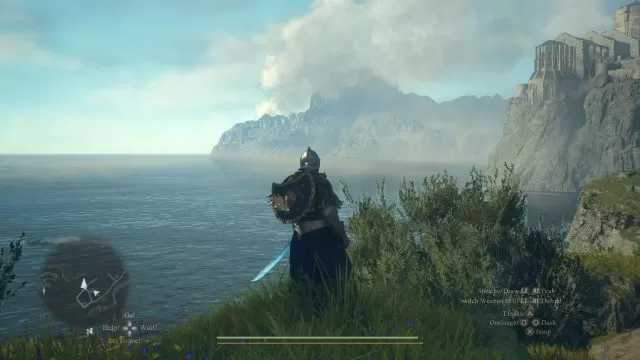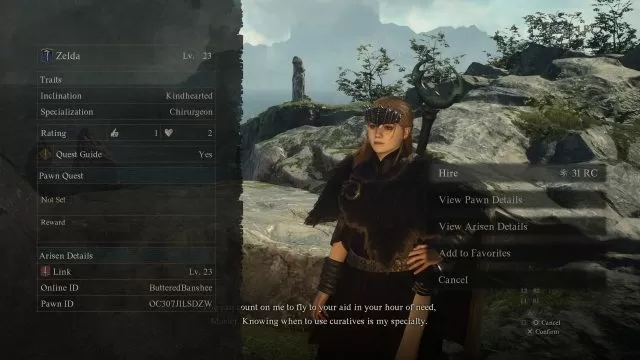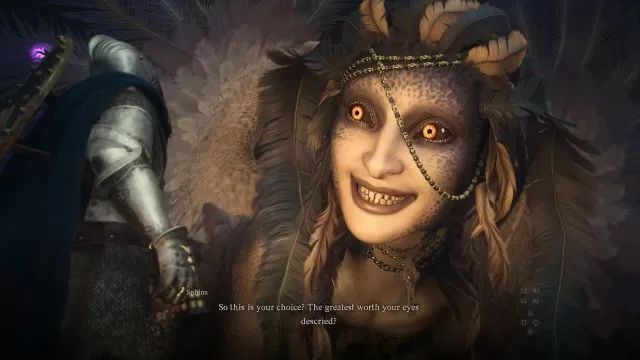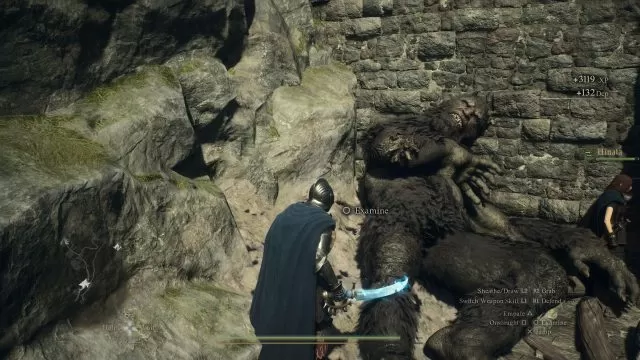Dragon’s Dogma 2 Review – Power Fantasy with Quirks
Dragon Dogma 2 is a landmark game by many criteria, the shining jewel that will also be remembered for the embarrassing rift between development talent and marketing stupidity. This is an RPG sculpted around the concept of slow travel on foot and emerging adventures in the content-rich wilderness. Fast travel in this game, at least during the first dozen hours, is a rare exception, requiring pricey magic tokens. You are expected to hike and soak up the beauty and the horror of the flush and expansive world. Dragon’s Dogma 2 developer underlines that convention-defying design with pride.
And then, on the launch day, the game which dared to be different, started offering fast-travel tokens as microtransactions. Although those are single-use items easily attainable by playing the game, the customers were baffled. What message are they sending with this contradictory nonsense? The ensuing review-bombing devastated the game’s rating on Steam, which most certainly affected the sales. Capcom’s internal development studio, I’m sure, had nothing to do with that, but the flak of reputational consequence broadly hit the entire company, including them. Marketing teams – creating the bad blood for no reason whatsoever since 1723.
The Skyrim in this one is strong

Sailing past this unfortunate kerfuffle, we are confronted with a beautiful game with a strong Skyrim vibe. The sequel to the iconic Dragon’s Dogma from 2012. doesn’t radically depart from its predecessor. Instead of revolutionary changes, it brings refinement across the board. It’s visually stunning and conceptually sound and it offers the most exquisite fulfillment of individual power fantasy. This isn’t a game where you politely wait your turn to swing the mace +2, it’s a fantasy gorefest of the highest order. There’s a tremendous value in the martial and magical force it depicts with a rarely experienced verve and potency.
In Dragon’s Dogma 2, you are once again the ubiquitous Arisen, chosen challenger to the powerful dragon, destined to sit on the throne of Vermund as mighty Sovran. But the great cycle of death, rebirth, and dragon-slaying is interrupted by the scheming queen. She intends to coronate the false Arisen, hoping to rule the kingdom by impostor proxy. You need to stop that and kill the dragon in the end, affirming your legacy. If there ever was a more fantasy-centric plot in any fantasy game, I have yet to learn about it… You’ll accomplish your task with the help of Pawns, overly submissive helpers from another dimension, drawn to your otherworldly power.
The leader of the Pawns

After losing a couple of hours in the robust character creator, your newly sketched avatar and his persistent Pawn sidekick are off to conquer the world. You and your Sancho Pansa or Pansita level together, and that’s why it’s best to make them complementary, class-wise. My tanking fighter Arisen greatly benefits from healing provided by my trusty AI mage, doubly so because her disposition is care above all else. The other two Pawns are temporary assistants, as they don’t accumulate XP and level up. Regularly replacing Pawns after outleveling them and recruiting more capable replacements is the gameplay constant.
There are four initial classes you can choose for yourself and your chief Pawn – Fighter, mage, archer, and thief. During your adventures, you’ll unlock six additional vocations. Some are more advanced than others, of course, but each has a value. Broad class-specific loot you’ll find will encourage you to switch and experiment. Embracing a different class is quick and painless, and, if you wish, temporary, as you can switch back at will. In combat, Pawns will act on their own, according to their disposition and fighting style. When the fur starts to fly, there’s not much strategy involved, unless you play support mage who heals everyone else.
Surprises around every corner

The best thing about questing in Dragon’s Dogma 2 is how easy it is to be distracted. Hiking across the countryside will often lead to random combat encounters, hidden dungeons, and, from time to time, epic discoveries. During one exploration trip through the cave system in the north, I stumbled upon the complex ruins and the giant staircase that led me to the hidden temple on top of the hill. There I encountered the most fabulous creature, the massive Spinx very fond of riddles. I spent the next day solving her more obvious tasks and thinking (hard) about the few curveballs she threw in my direction.
In many modern RPGs, questing is a matter of checklist and yellow paint markers. Dragon’s Dogma 2 partially discards that approach, forcing the player to think about the solution, rather than presenting them with a ten-point plan. Some quest dispositions are completely vague, requiring deduction and exploration. I found a bit of Dark Souls in that vagueness, and I raised the glass to great sensei Miyazaki’s influence. Dragon’s Dogma also seldom bombards you with lore dumps, preferring the organic exposition to walls of text. All this is extremely engaging and, in the context of modern games that pamper the lowest common denominator, very valuable.
Saving system inspired by Marquis de Sade

My main gripe with Dragon’s Dogma 2 is a restrictive saving system that can easily lead to a loss of progress. There are two save slots – one for manual or auto save (they always overwrite each other), and one you’ll get after resting in the inn. The second one is supposed to be more secure, but after you load it, the first one gets immediately overwritten by autosave. The inn autosave, for some reason, doesn’t count resting in camps – the game only saves in establishments, after you pay a fee. Sounds stupid? Yes, it is. And it’s stupid by design, intended to prevent save-scumming. Hey guys, if I want to scum my freakin’ saves during a normal, non-hardcore, casual playthrough, please let me. Fifty-plus hour RPG form is not suitable for trying the ideas normally found in roguelites.
If you watch like a hawk where and when you save, you’ll enjoy Dragon’s Dogma 2 like crazy. At least I did. It’s big, content-rich, and complex but very easy to jump into. It’s also visually stunning and solidly optimized, but so far, only on consoles. The PC version suffers from Denuvo syndrome, long denied by publishers but evident with everyone with eyes and common sense. That’s why it doesn’t deserve a review score of nine.
Highs
- Convention-defying design that engages the player much more than similar games do.
- Superbly kinetic, powerful combat, and awesome boss beasts.
- Gorgeous visuals.
Lows
- Denuvo DRM almost ruins the PC version, performance-wise.
- Restrictive saving system that can easily lead to loss of progress.

